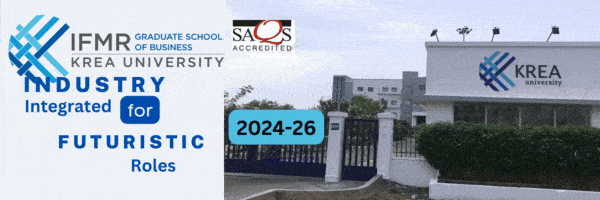Citing the incident where Facebook had to abandon an experiment undertaken last year where two artificially  intelligent programs or chatbots appeared to be chatting with each other in a strange language which they developed on their own and only they understood, Dr. Jitendra K. Das set the tone of the conclave on “The Confluence of Artificial Intelligence and Data Analytics” held recently at the FORE School of Management, New Delhi, in association with BRICS Chamber of Commerce & Industry.
intelligent programs or chatbots appeared to be chatting with each other in a strange language which they developed on their own and only they understood, Dr. Jitendra K. Das set the tone of the conclave on “The Confluence of Artificial Intelligence and Data Analytics” held recently at the FORE School of Management, New Delhi, in association with BRICS Chamber of Commerce & Industry.
Incidentally, the bizarre incident surfaced mid of 2017 when Facebook attempted to test its chatbots to try and negotiate with each other over a trade, attempting to swap hats, balls and books, each of which were given a certain value. But they quickly broke down as the robots appeared to chat with each other in a language that they each understood but which remained mysterious to their human creators.
Dr. Das further explained how with the help of complex virtual learning techniques, a wide range of physical and cognitive tasks are being managed today with a high level of efficiency and accuracy.
And as artificial intelligence or AI systems advance through machine learning these will continue to impact not just business but our lives as well. But, if indeed machines continue to improve their performance beyond human levels, a natural question to ask is whether machines will put humans’ jobs at risk and reduce employment.
According to Mr. Vijay Sethi, CIO & Head CSR at Hero MotoCorp Ltd., “Such a concern is not new and in fact dates back to the 1940s when AI and automation started developing”.
Referring to YouTube where 70% of the video consumption is guided by AI after analyzing the viewer’s search patterns or history, Mr. Sethi explained, how with advanced pattern recognition systems and data analytics AI will surpass human intelligence, leading to an unimaginable revolution in human affairs.
But will it lead to unemployment? Will it replicate human beings?
Time and again these concerns have been raised by the citizens of the world. Some apprehensions even stretched to the point where one wondered instead of we controlling artificial intelligence, will it control us, turning us, in effect, into cyborgs?
Demystifying Artificial Intelligence and addressing these concerns on the future of human work and employment Mr. Binay Rath, Director, APAC Alliances and Channels, Oracle Health Sciences GBU, mentioned that the benefits of AI is clear so instead of being concerned about the threats of AI we need to first understand what AI is and what its potential will be. Followed by which, we need to have ethical policy frameworks in place for the operation of machines and AI automated systems.
Mr. Nishith Pathak, Vice President at Accenture Labs India and author of many books on AI, echoed similar sentiments. Citing the example of Postal Services he said though we do not write letters nowadays yet postman and post offices have not gone redundant; they have a different role to play with a different set of responsibilities. Likewise some low level programming jobs may go and instead data scientists will be in huge demand.
Dr. Sumeet Kad, Portfolio Marketing Manager, IBM Healthcare and Life Sciences and blogger on the subject, mentioned how the healthcare industry landscape is undergoing a rapid transformation across the globe in the field of big data & analytics and how Artificial Intelligence is playing a cognitive role in transforming healthcare organizations to improve quality of care, reduce costs, engage patients and allow organizations to focus more on wellness and standardize care process.
Also present in the conclave to provide insights into the present and future and deliberating the impact of AI on enterprises and lives were Dr. B.B. L Madhukar, Secretary General BRICS CCI and VP at FORE School; Mr. Sumit Bhalla Data Scientist, IBM India; Mr. Dhruv Singhal , Head Solution Architecture, Amazon India, Mr. Shashikant Brahmankar, Director, HCL Technologies India and Mr. Anupam Saronwala, Former Program Director, IBM Research Business Development; Mr. Deepak Wadhawan, Chief Exec, Inst. of Internal Auditors – India. Prof. Shilpi Jain, faculty and convener of the AI Conclave.
The discussions focused upon some of the pertinent questions highlighting the use of tools and methods to prepare, organize and tap into AI’s transformative power; and to unearth practical applications and current commercialization of AI technologies, Machine Learning and Deep Learning, across industries and most importantly the nuances and ethical practices or policies which have to be in place in the future.




